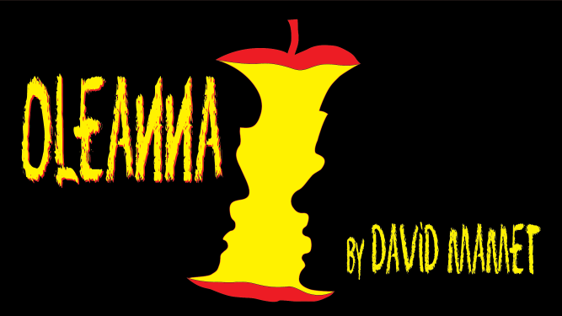Oleanna: Seventhirty Productions excellent take on flawed script

David Mamet’s play Oleanna is about the power struggle between a university professor and one of his female students who accuses him of sexual harassment. It came out around the time of Anita Hill’s testimony against U.S. Supreme Court Nominee Clarence Thomas and the themes still ring true. The early 90s had Anita Hill and the 2010s have the #MeToo movement, proving these problems are, unfortunately, still very relevant. Today, there is a push to hold those in power to task for their predatory behaviour, and political correctness is at the forefront of discussion. It is no surprise that a play centring around power and submission and who has the right to occupy what position, is fiercely relevant and needed today. I’m just not sure Oleanna is or should be that play.
While the play’s ideas are relevant and invite further discussion, the method – in the way characters are presented and the weight behind each of their arguments – misses a chance of presenting the kind of ambiguity that could have made the play great. Putting aside the critiques of Oleanna, Seventhirty Productions’ grapples well with the flawed material. The production cannot, however, present something that isn’t there in the play; it faithfully presents a straightforward, well-acted production that makes the audience sympathize with the professor.
Oleanna’s story is fairly simple. Carol (Madeleine Jullian) comes to see her professor John (Guy Buller) because she is failing his course. Guy Buller plays a charming, somewhat scattered professor who cares about his students and changing the educational system. His body language is nonthreatening, even as he circles Carol in the small office. Buller is so full of charm that it’s easy to miss how condescending and selfish John is, pontificating against the nature of education and fancying himself a counter culture rebel. He is unquestioningly convinced of his own magnanimity, all the while interrupting Carol to take calls about his impending house purchase and tenure appointment instead of listening to her very real problem.
Madeleine Jullian presents Carol’s progression from scared student to a confident, strident woman seamlessly; though she does struggle, as most would, with humanizing Carol. This is not her fault – any actress would struggle with the empty husk of a character Mamet has created. Carol is alternatively presented as a dimwit and a malevolent mastermind, yet is denied any kind of back story or depth. Jullian grapples with the challenges of the role and plays into Carol’s lessening humanity, her tone and actions becoming sharper and increasingly aggressive. She certainly holds her own in a battle of wits, as both her and Buller keep up with the demanding pace of Mamet’s script.
The excellent acting is rounded out by John P. Kelly, whose directing explores the location of power with a much more subtle approach than the script. He follows the shift in power, using John’s desk as the invisible line that divides the strong from the weak. He plays Carol and John like chess pieces, choreographing them as they weave in and out of each other’s space, vying for the top spot. There is a simmering tension from the beginning between the characters and Kelly plays it patiently – building up their relationship in the first act and allowing the emotions to boil over naturally.
Oleanna raises a lot of essential questions about power, who defines the context of what is and isn’t appropriate, and why. But, instead of allowing the audience to come to their own conclusions, it instead presents a worst-case scenario of political correctness in Carol. Her one-dimensional character, as well as her eventual need for absolute control is stiflingly authoritative and obliterates the possibility for an entirely valid conversation. Nevertheless, Seventhirty productions does a commendable job of putting on this complex and difficult play.